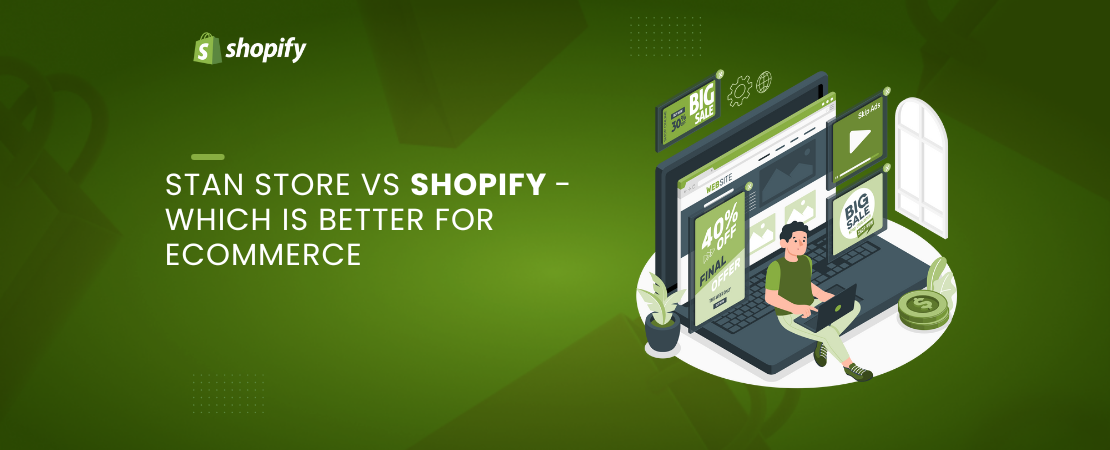Navigating the landscape of online commerce forces businesses to choose between two popular platforms: Shopify vs WordPress. Each platform offers unique advantages tailored to different needs, making the decision critical for entrepreneurs and content creators alike.
Shopify is a dedicated e-commerce solution providing an all-in-one platform that simplifies store management with built-in features and reliable hosting.
WordPress is a content management system that allows for extensive customization through plugins, particularly for those who prioritize blogging alongside their e-commerce efforts.
Understanding the differences between the two is essential for making an informed choice. Shopify excels with ease of use and integrations, while WordPress offers flexibility and control; this blog will explore these platforms in depth, allowing businesses to determine which platform aligns best with their business goals.
Related: see our guide on what Shopify costs for plan breakdowns and transaction fees.
Shopify vs. WordPress at a glance
Before we jump into a comparison of Shopify vs WordPress, laying the groundwork for the rest of the conversation is essential. A brief overview of both platforms explains what they offer in the following way:
What Is Shopify?
Shopify is one of the most commonly used e-commerce platforms globally, allowing countless businesses to build online stores. It is a cloud-based platform that helps companies, startups, or small e-commerce businesses create an online presence and sell their products.
Its e-commerce functionalities combine with its user-friendly interface, the Shopify App Store, payment processor integrations, and global availability. Shopify is known for its simple customizability and development, helping companies avoid complex custom store development.
What Is WordPress?
WordPress is a content management system millions use to build websites, including e-commerce stores. We’ve heard of blogs built on WordPress, but the platform is often used to develop highly customized online stores.
WordPress uses open-source architecture in conjunction with its countless plugins and customizations. It is an SEO-friendly platform allowing e-commerce websites to add blogs, portfolios, and complex product catalogs. WordPress best suits businesses that want highly customized stores and extensive control over the website’s form and function.
Shopify vs WordPress Comparison
Now that you know the basics of each platform, it is essential to understand how the two differ. This section covers both platforms’ costs, sales features, personalization, and e-commerce viability. We’ve segmented them into separate sections to settle the Shopify vs WordPress discussion.
Costing
Each platform costs money to use but is different. This section explains the cost of Shopify vs WordPress.
Shopify
E-commerce stores can use one of four Shopify plans to build an online presence. These are the Shopify plans to pick from:
- Basic Plan at $25 monthly. Businesses can run one online store with two staff accounts and unlimited products.
- Shopify Plan at $65 monthly. Businesses can run five online stores with five staff accounts and professional reports.
- Advanced Plan at $399 monthly. Businesses can run 15 online stores with 15 staff accounts and advanced reporting.
- Enterprise Plan involves Custom pricing for large businesses with high-volume traffic that exceeds the standard plan capacity.
- Plus: custom pricing—see our Shopify Plus pricing guide
Additional feeds include transaction fees whenever the customer purchases, Shopify app and theme purchases, and custom development. These should be considered investments into the business instead of expenses because they help the stores perform better.
WordPress
An e-commerce store built on WordPress benefits from several features that made the platform successful. While the platform is free, certain features and functionality are paid.
- With no upfront cost, WordPress is an open-source platform on which to build stores.
- Hosting can cost between $3 to $10 monthly, with domains costing between $10 to $20 annually.
WordPress themes and plugin prices can range from a few dollars to several hundred monthly or annually. Stores that choose custom WordPress Development should prepare to invest more for a truly unique and personalized store.
Sales Features
The sales features of e-commerce platforms form the core of its functionality. While the basic feature set is the same, they offer various incentives for businesses to pick one over the other. The choice is dedicated to what an e-commerce business requires with the most prominent sales features, including:
Shopify
The main Shopify sales features include:
- Powerful built-in features include building an extensive product catalog, offering a digital shopping cart, creating checkout pages, integrating payment processors, using different shipping providers, and using order management software.
- The Shopify App Store has 8000+ applications used by countless businesses to improve store functionality. These include marketing automation tools, inventory management systems, and customer support integrations.
- Shopify allows e-commerce businesses to incorporate point-of-sale (POS) systems to create smoother in-store sales integration.
- There are several professionally designed themes for store owners to choose from when creating their storefronts. Most themes can be personalized to build a unique brand identity.
- Custom themes for unique UX—consider our Shopify development process guide for contrast
WordPress
Comparatively, here’s how WordPress sales features work:
- WordPress requires various third-party plugins to run various core e-commerce functions.
- The most popular WordPress plugins include WooCommerce, MemberPress, and Easy Digital Downloads. There are several others that businesses can pick from depending on their requirements.
- WordPress’s modularity allows store owners to be more flexible with form and function, allowing them to personalize sales features just as the business requires.
- E-commerce store owners can pick from various free and premium WordPress themes. Custom WordPress theme development makes it easier to design personalized store themes.
Related: Hire Shopify developers to build a fast, high-converting store.
E-commerce functionality
Since both platforms will be used to run e-commerce stores, comparing their e-commerce functionality is essential. The main differences between the two are as follows:
Shopify
- Its user-friendly interface makes setting up and managing an online store easy.
- Comprehensive features include everything to sell online, from product listings to order fulfillment.
- Integration with all major payment gateways
WordPress
- A WordPress e-commerce store relies on various plugins for different e-commerce functionality.
- WordPress is more customizable than Shopify, allowing it to incorporate specific features.
- WordPress can integrate with various payment gateways when using the right plugins.
Conclusion
Picking between Shopify vs WordPress hinges on business needs and technical expertise. Shopify offers a streamlined, all-in-one solution for a simplified e-commerce experience, making it ideal for users who prioritize ease of use and quick setup.
Its built-in features, reliable hosting, and 24/7 customer support create the perfect environment, allowing entrepreneurs to focus on growing without getting held back by technical details.
WordPress excels in flexibility and customization, catering to businesses that want more control over their website’s design and functionality. It requires more effort in setup and maintenance and allows for extensive personalization through various plugins and themes.
Ultimately, if you seek a straightforward e-commerce platform with minimal fuss, Shopify is the better choice. However, if you value customization and have the technical know-how to manage a more complex setup, WordPress could serve you well.
FAQs
Is it best to use Shopify or WordPress?
Shopify is better for e-commerce beginners who want an off-the-shelf solution. WordPress is better for e-commerce stores that need more technical expertise. The answer to Shopify vs WordPress for ecommerce? Whichever is best for business.
Is Shopify or WordPress better for SEO?
Shopify and WordPress can be optimized for better SEO performance. WordPress edges slightly ahead with more flexibility and customization.
Should I use WordPress with Shopify?
It is not recommended that the two platforms be used together.
Can I create an online store with WordPress?
Yes. It is possible to build an e-commerce store with WordPress using different plugins, e.g., WooCommerce.
Can you sell on WordPress with Shopify?
No, it isnt possible to sell directly on WordPress using Shopify. However, Shopify can be used to power the e-commerce side of a WordPress website.



